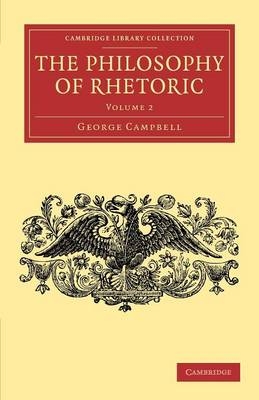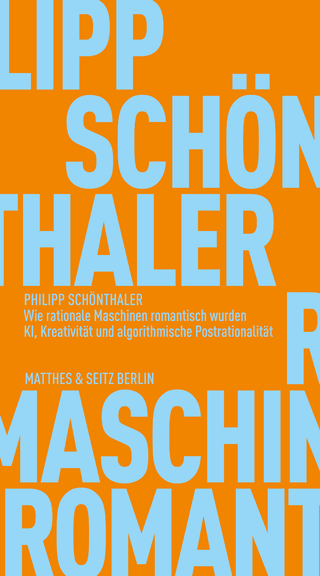
The Philosophy of Rhetoric: Volume 2
Seiten
2013
Cambridge University Press (Verlag)
978-1-108-06388-3 (ISBN)
Cambridge University Press (Verlag)
978-1-108-06388-3 (ISBN)
Published in 1776, this is a classic two-volume work on rhetorical theory by a leading figure of the Scottish Enlightenment. George Campbell (1719–96) was particularly interested in the effect of successful rhetoric upon the mind, combining classical theory with the latest thinking in the social, behavioural and natural sciences.
A leading figure of the Scottish Enlightenment, George Campbell (1719–96) began to write what was to become his most famous work, The Philosophy of Rhetoric, soon after his ordination as a minister in 1748. Later, as a founder of the Aberdeen Philosophical Society, he was able to present his theories, and these discourses were eventually published in 1776. In the spirit of the Enlightenment, Campbell combined classical rhetorical theory with the latest thinking in the social, behavioural and natural sciences. A proponent of 'common sense' philosophy, he was particularly interested in the effect of successful rhetoric upon the mind. Published in two volumes, the work is divided into three books. Volume 2 contains the concluding part of Book 2 and all of Book 3, which shows the author at his most intricate, expanding upon the correct selection, number and arrangement of words required for successful argument.
A leading figure of the Scottish Enlightenment, George Campbell (1719–96) began to write what was to become his most famous work, The Philosophy of Rhetoric, soon after his ordination as a minister in 1748. Later, as a founder of the Aberdeen Philosophical Society, he was able to present his theories, and these discourses were eventually published in 1776. In the spirit of the Enlightenment, Campbell combined classical rhetorical theory with the latest thinking in the social, behavioural and natural sciences. A proponent of 'common sense' philosophy, he was particularly interested in the effect of successful rhetoric upon the mind. Published in two volumes, the work is divided into three books. Volume 2 contains the concluding part of Book 2 and all of Book 3, which shows the author at his most intricate, expanding upon the correct selection, number and arrangement of words required for successful argument.
5. Of the qualities of style strictly rhetorical; 6. Of perspicuity; 7. What is the cause that nonsense so often escapes being detected, both by the writer and by the reader; 8. The extensive usefulness of perspicuity; 9. May there not be an excess of perspicuity?; Part III. The Discriminating Properties of Elocution: 1. Of vivacity as depending on the choice of words; 2. Of vivacity as depending on the number of the words; 3. Of vivacity as depending on the arrangement of the words; 4. Of the connectives employed in combining the parts of a sentence; 5. Of the connectives employed in combining the sentences in a discourse.
| Reihe/Serie | Cambridge Library Collection - Philosophy |
|---|---|
| Verlagsort | Cambridge |
| Sprache | englisch |
| Maße | 140 x 216 mm |
| Gewicht | 580 g |
| Themenwelt | Geisteswissenschaften ► Philosophie ► Sprachphilosophie |
| Geisteswissenschaften ► Sprach- / Literaturwissenschaft ► Sprachwissenschaft | |
| ISBN-10 | 1-108-06388-8 / 1108063888 |
| ISBN-13 | 978-1-108-06388-3 / 9781108063883 |
| Zustand | Neuware |
| Haben Sie eine Frage zum Produkt? |
Mehr entdecken
aus dem Bereich
aus dem Bereich
Macht und Legitimität politischer Sprache im Prozess der europäischen …
Buch | Softcover (2023)
Nomos (Verlag)
74,00 €
KI, Kreativität und algorithmische Postrationalität
Buch | Softcover (2024)
Matthes & Seitz Berlin (Verlag)
16,00 €
Wie die Menschheit zu ihrer größten Erfindung kam
Buch | Softcover (2022)
C.H.Beck (Verlag)
18,00 €


